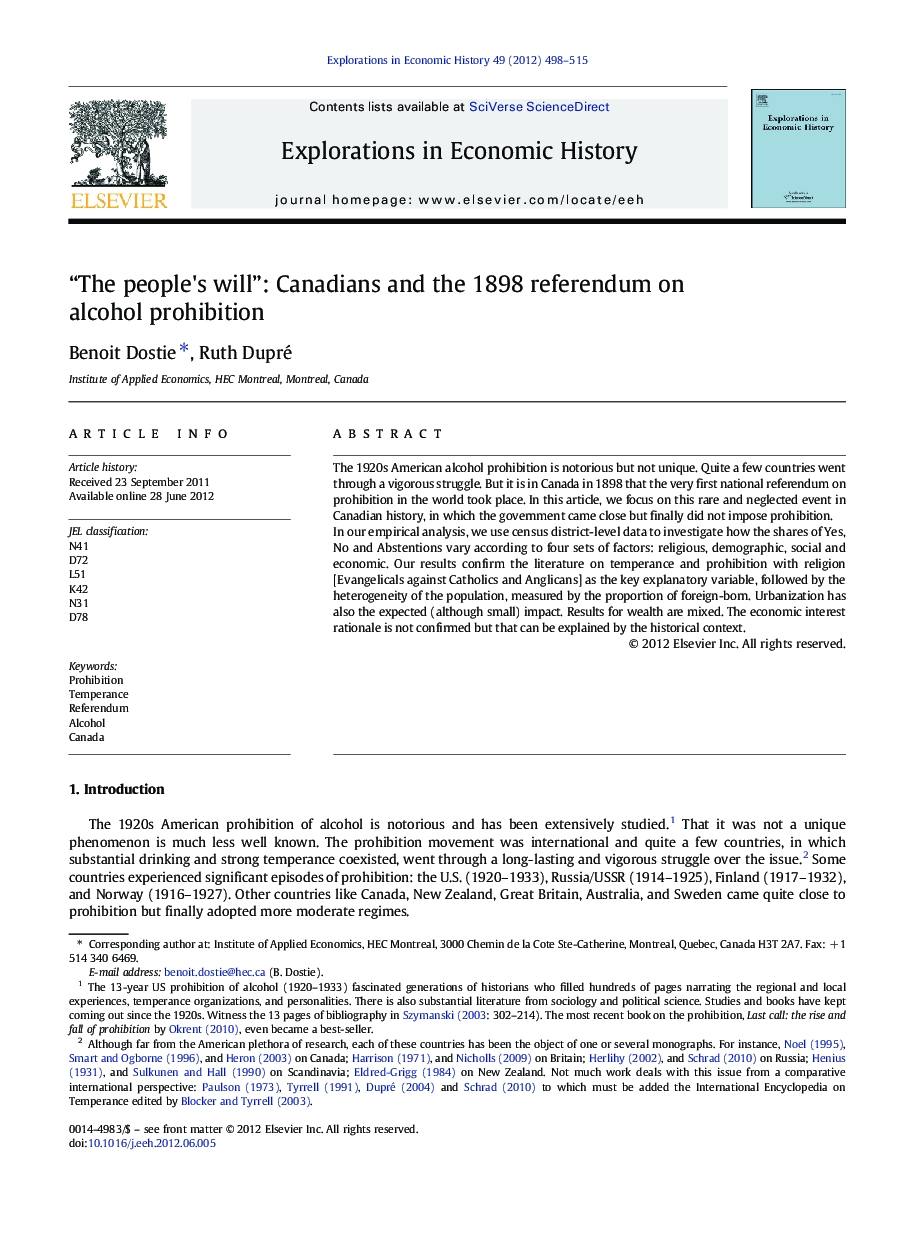| Article ID | Journal | Published Year | Pages | File Type |
|---|---|---|---|---|
| 5068811 | Explorations in Economic History | 2012 | 18 Pages |
The 1920s American alcohol prohibition is notorious but not unique. Quite a few countries went through a vigorous struggle. But it is in Canada in 1898 that the very first national referendum on prohibition in the world took place. In this article, we focus on this rare and neglected event in Canadian history, in which the government came close but finally did not impose prohibition.In our empirical analysis, we use census district-level data to investigate how the shares of Yes, No and Abstentions vary according to four sets of factors: religious, demographic, social and economic. Our results confirm the literature on temperance and prohibition with religion [Evangelicals against Catholics and Anglicans] as the key explanatory variable, followed by the heterogeneity of the population, measured by the proportion of foreign-born. Urbanization has also the expected (although small) impact. Results for wealth are mixed. The economic interest rationale is not confirmed but that can be explained by the historical context.
⺠The first national referendum on alcohol prohibition occurred in Canada in 1898. ⺠We examine how votes depend on religious, demographic, social and economic factors. ⺠Our econometric results show religion as the key determinant of the voting outcome. ⺠Evangelicals were prohibitionist; Catholics and Anglicans were mostly against it. ⺠Other significant variables include the proportion of foreign-born and urbanization.
